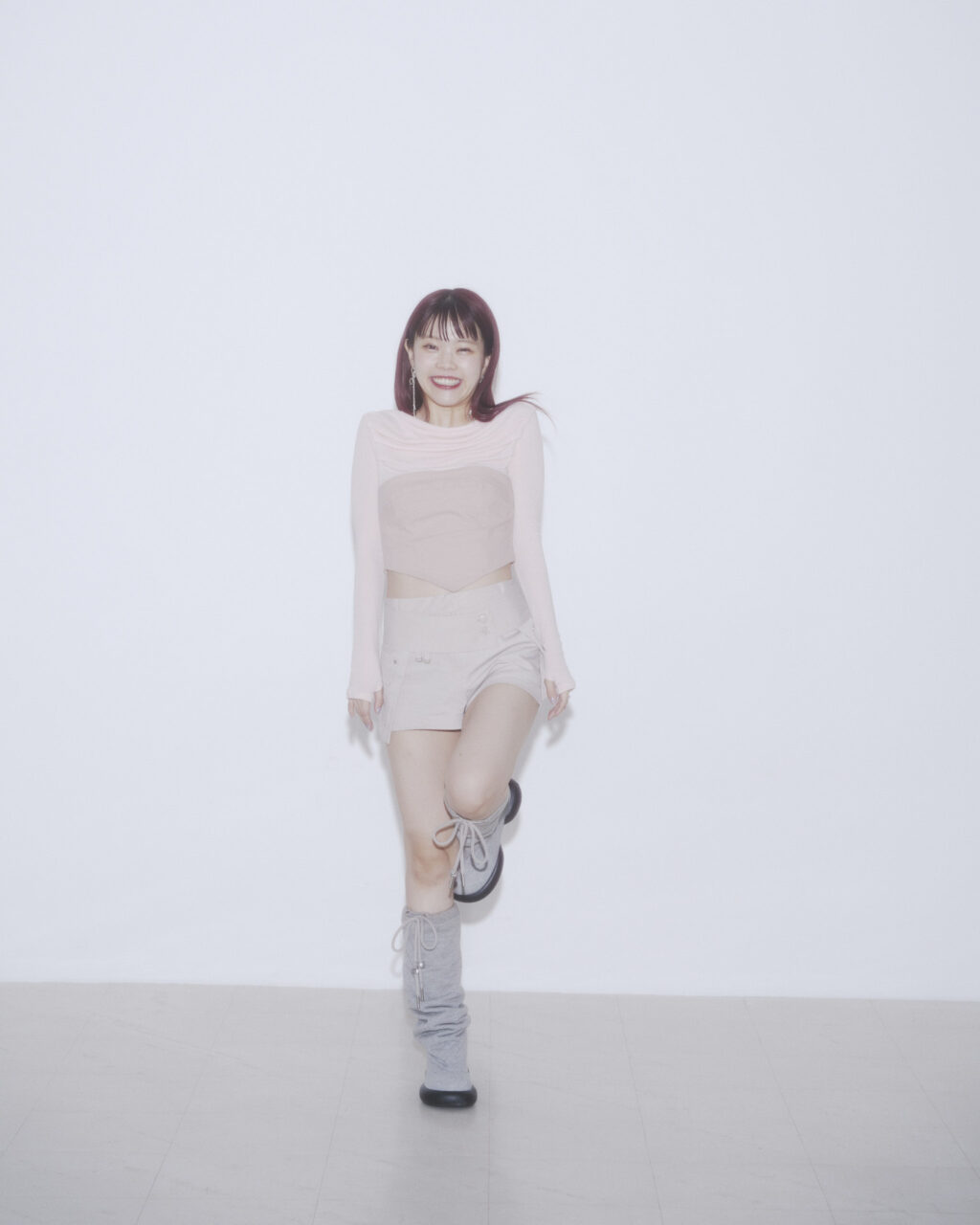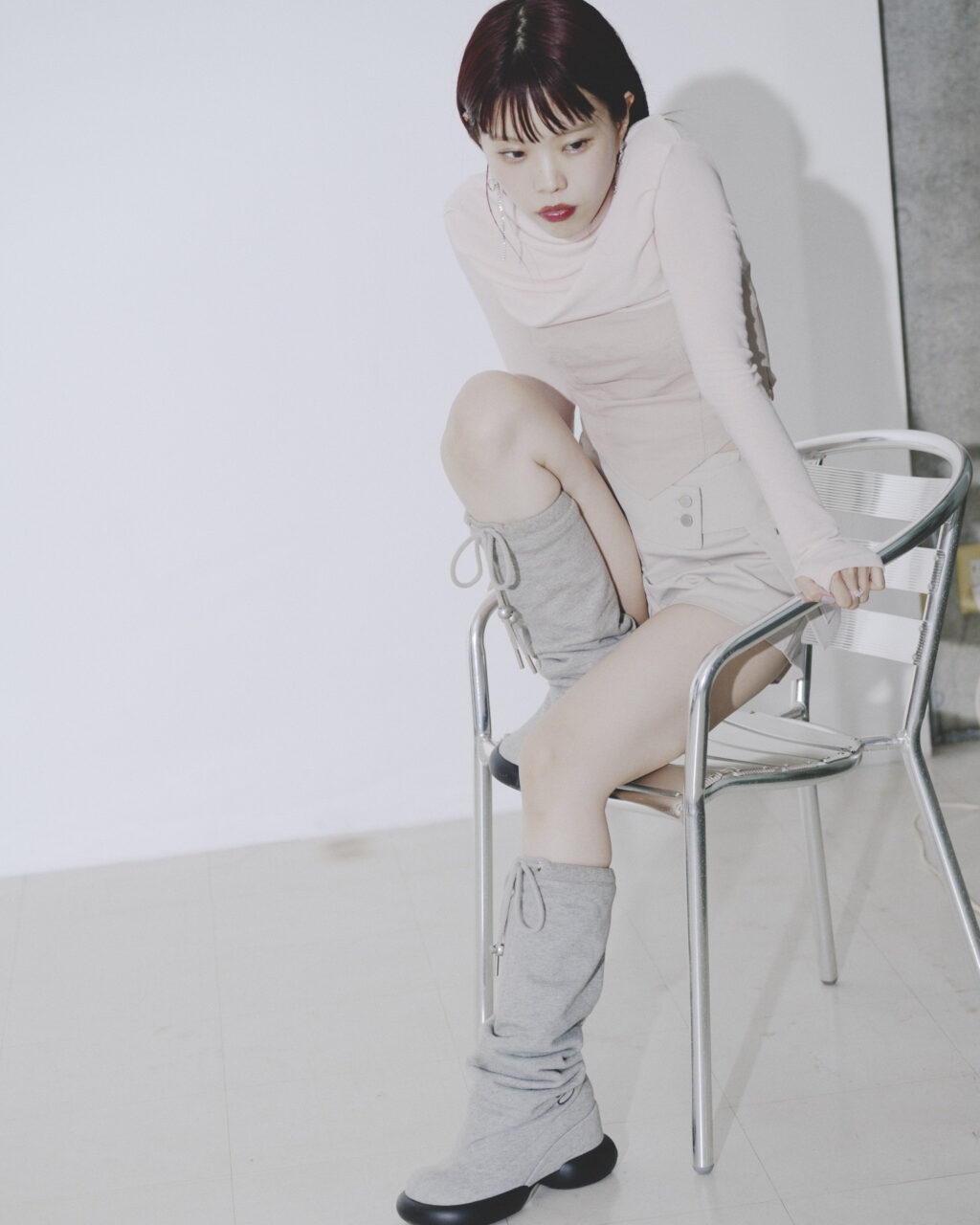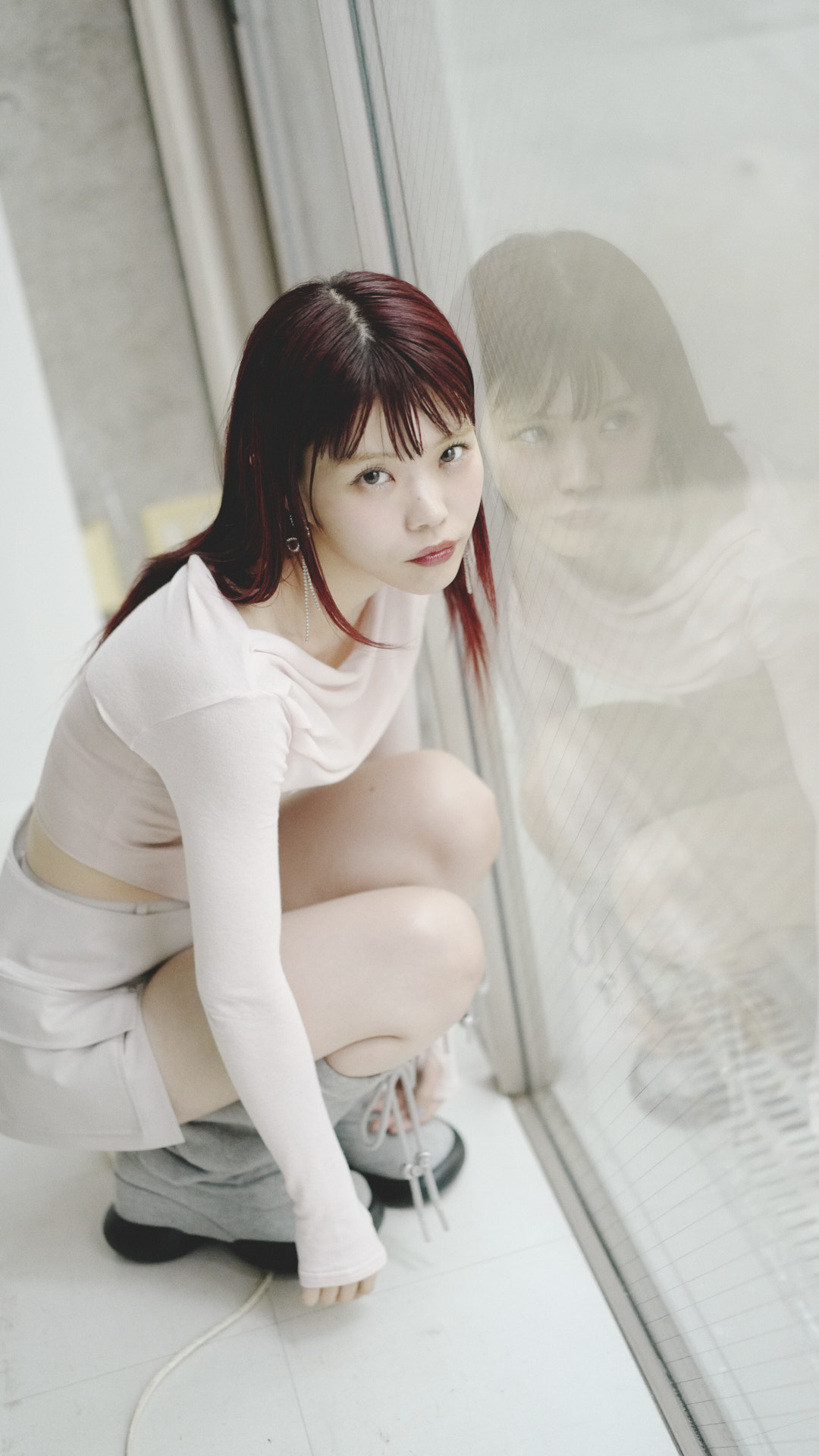On the eve of her solo debut at the Nippon Budokan, September 6, 2024, AiNA THE END sat quietly in a small café in Maruyama-cho, Shibuya. Tears welled in her eyes. She had once stood on the grand stage of Tokyo Dome with BiSH, taking in a view few ever see. So why, now as a solo artist, was she crying?
The answer lies within the pages of her first essay collection “Tassha Janakutemo” (“Even If I’m Not Doing Great”), a book she spent nearly a year writing. It’s an unflinching account of her thirty-year journey, both as an expressive artist and as a deeply feeling individual.
As you read, you begin to see just how intensely she has lived. Every page pulses with the urgency of someone who has poured themselves entirely into becoming AiNA THE END—a performer who doesn’t just sing or dance, but expresses with her whole being.
In this moment of transformation, standing at the threshold between BiSH and something entirely her own, what kind of resolve has she found? How does she carry the legacy of BiSH while carving a new path forward? Through stories of family, mentors, and friends, a fuller portrait of AiNA THE END emerges — honest, vulnerable, and fiercely determined.
INDEX

AiNA THE END began her career in 2015 as a member of the “punk band without instruments,” BiSH, and made her major debut the following year. In 2021, she fully launched her solo career with the release of her first album ‘THE END’, for which she wrote and composed every track. In June 2023, BiSH disbanded to much fanfare, and she now continues to pursue her path as a solo artist.
Outfit
Top ¥15,840 / NOT YOUR ROSE (Hana Korea)
Pants ¥12,870, Belt bag ¥8,140 / ASURA (Hana Korea)
Boots ¥86,900 / GRAPE (9Fox LLC)
For inquiries:
Hana Korea: support@hana-korea.com
9Fox LLC: info@9fox.ltd
Tears in a Shibuya Café: AiNA Reflects on Life After BiSH
The image of you crying in a café just days before your solo Budokan concert, shown like an opening scene in your essay, left a strong impression. What emotions were behind those tears?
Aina: Having performed at Tokyo Dome with BiSH, feeling the roar of nearly 50,000 fans through my in-ear monitors, and seeing them dance to choreography I created—there’s nothing else like that moment. At BiSH’s farewell concert, watching that scene again, I realized that no matter how hard I try on my own, I probably can’t surpass it.
When I was in that café, I was filled with a sense of negativity about my future. I thought that even if I stood on the Budokan stage alone, I probably wouldn’t see a view better than that. It felt like no matter how much effort I put in, I couldn’t overcome BiSH.
But deep down, I wanted to surpass BiSH. That’s why I cried. Back then, whether in the café or while writing the essay, I didn’t fully understand it myself, but I’ve come to realize it now.
So you came to see BiSH as something you needed to overcome personally.
AiNA: Exactly. After BiSH disbanded, as AiNA THE END, I wanted to express myself through songs I wrote, to inspire people on stage, to connect with others. But at the same time, I felt like BiSH was a kind of weight holding me back. I struggled with that feeling. Without realizing it, the desire to break free from that weight at Budokan was already taking root.
I recently saw your solo show at Zepp Haneda and honestly, it didn’t feel like a typical live house performance. It was on the level of an arena show. Listening to you now, I see how your determination to surpass BiSH drives you to deliver such a powerful performance.
AiNA: I want to give everything as AiNA THE END. From the dance I’ve practiced since I was four, to the singing I love, to the contemporary dance where I lose myself, to jazz dance—I want to express it all. Now that I’m doing this naturally, the goal isn’t just to surpass BiSH anymore. New, higher ambitions are emerging. I want to become truly one of a kind. That’s the spirit I bring to every live show now.

You also performed BiSH’s “Orchestra” at that show. Is that something you feel you could only do now?
AiNA: Definitely. I don’t think I could have sung it back when I was preparing for Budokan. It really came after that experience.
Like I mentioned in my book, before Budokan, my mental state was all over the place—I even collapsed during some live performances. After BiSH disbanded, I was on my own, and my mindset as a solo artist wasn’t settled yet. But after Budokan, everything finally fell into place.
It sounds like you gained the true courage to stand alone in the spotlight.
AiNA: Exactly. Before Budokan, I didn’t have that resolve. During the first couple of songs at Budokan, my legs were shaky. Honestly, I was singing without feeling fully grounded.
But as the show went on, I gradually felt more solid on my feet. By the end, I realized, “I’m an artist who can truly stand on the Budokan stage!” That moment marked the beginning of my real commitment as a solo artist.
Back when you were in BiSH, you likely carried the responsibility of overseeing the group, including choreography, and I imagine you gave your all as both a performer and an idol to meet those expectations. Do you think that overwhelming sense of achievement at Budokan was essential for you to find the determination to move forward as a solo artist?
AiNA: Yes, absolutely. Being part of BiSH and going solo are worlds apart. When BiSH played festivals, we were unbeatable. No matter which festival we appeared at, it felt like we always came out on top, and the crowd’s energy was incredible. That was thanks in large part to our amazing fans.
But going solo has been a totally different experience. Sometimes it feels like I’m forcing my own vision onto the audience. When I can’t fully engage them, it hits me hard — I realize I can’t dominate the way I did with BiSH. So, in many ways, I’m starting fresh as a new artist. Since the disbandment, it truly feels like I’m building my solo career from the ground up.


























